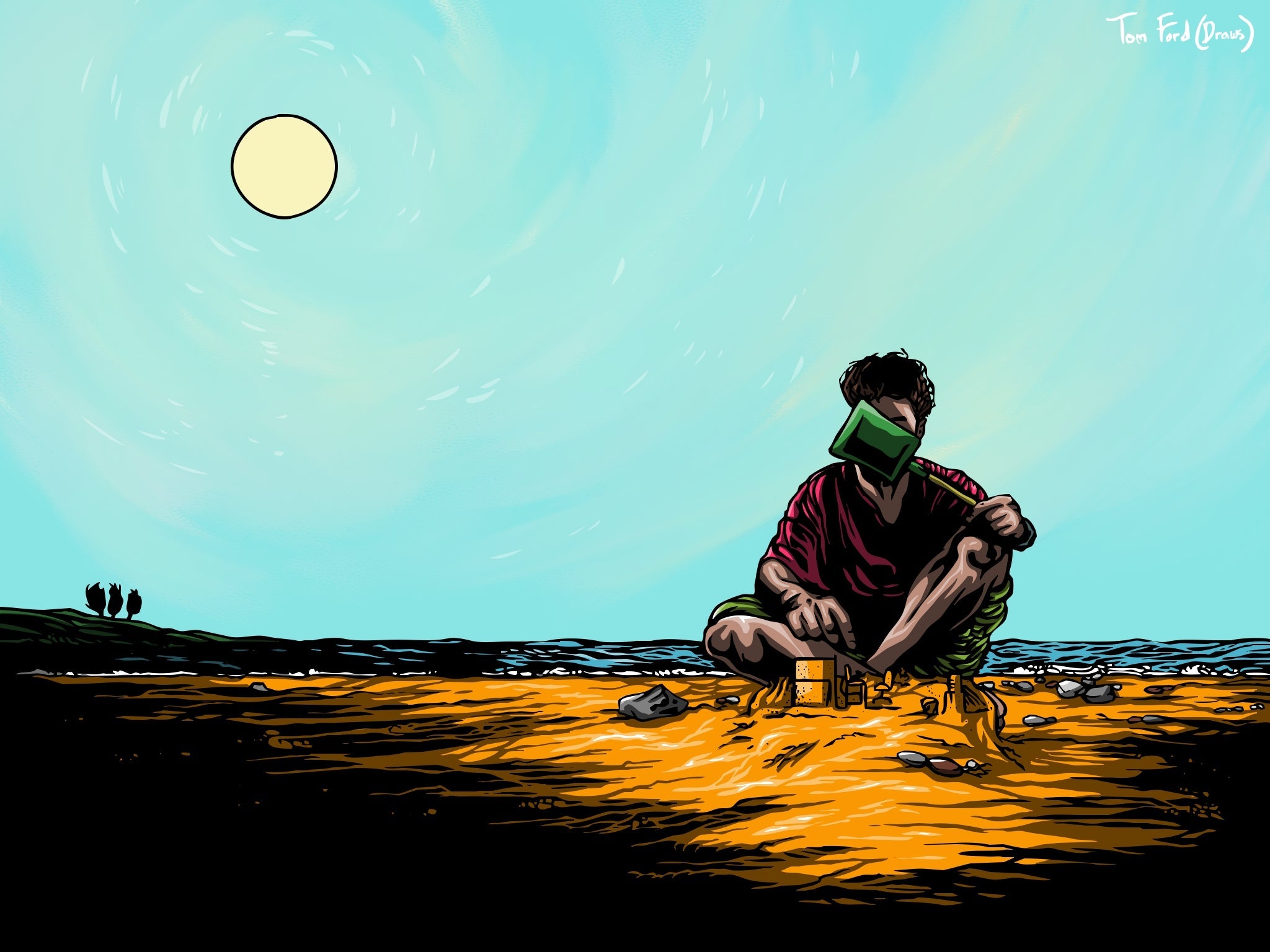Why the nostalgia of anticipatory holidays past ruins the present
The Outsiders: On a sunny beach in Corfu, Dan Antopolski can’t help but reminisce on his dichotomous performance nearly two decades ago at the Edinburgh Festival


Your support helps us to tell the story
From reproductive rights to climate change to Big Tech, The Independent is on the ground when the story is developing. Whether it's investigating the financials of Elon Musk's pro-Trump PAC or producing our latest documentary, 'The A Word', which shines a light on the American women fighting for reproductive rights, we know how important it is to parse out the facts from the messaging.
At such a critical moment in US history, we need reporters on the ground. Your donation allows us to keep sending journalists to speak to both sides of the story.
The Independent is trusted by Americans across the entire political spectrum. And unlike many other quality news outlets, we choose not to lock Americans out of our reporting and analysis with paywalls. We believe quality journalism should be available to everyone, paid for by those who can afford it.
Your support makes all the difference.For the first three-quarters of a holiday I am horribly peevish. At time of writing I am on a beautiful beach in northern Corfu, far from Kavos where my pale countrymen summer en masse. The water here is crystal clear, my children frolic together in the waves, forgetting their teenage dignity and closing, though with bookmarks, the ledger of each other’s crimes. My wife thrives in the sun, loves the sea, is into her book. The fish is spectacular. The split pea fava is miraculous. The tzatziki is good and garlicky. Our favoured beach has reservable recliners to which club sandwiches can be brought by a nice man.
It’s doing my head in. We have been here five days and already I am counting down the hours until we return home. Why can’t I be happy where I am, which is better by any objective measure than where I was before? It isn’t guilt: I’ve worked hard this year, I deserve leisure. I was looking forward to this. In fact I was really enjoying looking forward to the experiences I am having right now. All I can think is that it is the loss of that anticipation that I am mourning so perversely. “Ultimately one loves one’s desires more than that which is desired,” quipped the humourist Fred Nietzsche, before being asked to leave.
This year’s Edinburgh Festival has just drawn to a close. I wasn’t there this year because I cleared my summer for a project which has in the event been postponed to the autumn, leaving me free to come to this sun-drenched elysium with my family, for which opportunity, as I have mentioned, I am truly grateful. But I’ve done 15 Edinburgh Festivals over the years and I’ve often enjoyed anticipating it more than the festival month itself.
In my first Edinburgh hour, way back in the year 2000 when the world was young, I wrote and memorised a 20-minute dialogue for a double act consisting of me live on stage in August and me recorded onto a cassette in July, which I played in on a retro ghettoblaster with primary coloured EQ sliders. Recorded Guy was necessarily deaf to the goings-on in the room and kept voicing his disappointment at not hearing the laughs – Live Guy was able to assure him that he wasn’t missing much, or that he was – as the case might be on a given night.
During the show we fell out, as double acts will – dissing each other’s mums while forgetting that we shared one and so forth. Live Guy flounced offstage, leaving Recorded Guy to attempt to interact with the audience from his position of sensory deprivation, bemoaning all the while his deafness to their response. Most audiences did respond and an interaction of sorts took place for some minutes. On one occasion an audience member stopped the cassette, a respectable objection to this shifted onus of liveness.
Eventually Recorded Guy ran out of tape and “died” and a distraught Live Guy respectfully closed his eyes (EQ sliders) to prepare him for his Stygian journey, but then they realised that Recorded Guy couldn’t die without killing Live Guy so the cassette must be a C-90 not a C-60; everybody cheered then there was a song. I should explain that there were only about 20 comedians back then so you could get away with a lot if you showed up every night and stood facing the right way.
Anyway, as the festival month wore on there grew, as hoped, a real difference between the two voices. Recorded Guy said his lines with perky commitment night after night while Live Guy was wisened by the fluctuating ease and struggle of the performances and jaded physically by the extra gigging and the late drinking and all the sweet anxiety and the feigned nonchalance at good reviews and the passionate indignation at bad ones. By late August he was in a very different place emotionally and spiritually from Recorded Guy, and you could tell.
Ironically, while Recorded Guy was always sincerely envious of Live Guy’s contact with the audience, the envy became mutual: Recorded Guy’s hope for the future could never be dented and his sunny attitude made him likeable to audiences – eventually more likeable than knackered Live Guy, who became genuinely jealous when his former self got more laughs – though he learned to amplify his jadedness for heightened contrast, which final bit of business locked the show into a sustainable shape.
By the end of August 2000 I was sick of Recorded Guy’s dogged optimism and threw him into a prop box, where he languishes. I am now old enough to be his father; it could be instructive to interact with him again. Perhaps when I get home I will bring him back to life. But at the moment I am looking forward to it and if I focus on the prospect I may get through the rest of this lovely holiday.
Join our commenting forum
Join thought-provoking conversations, follow other Independent readers and see their replies
Comments